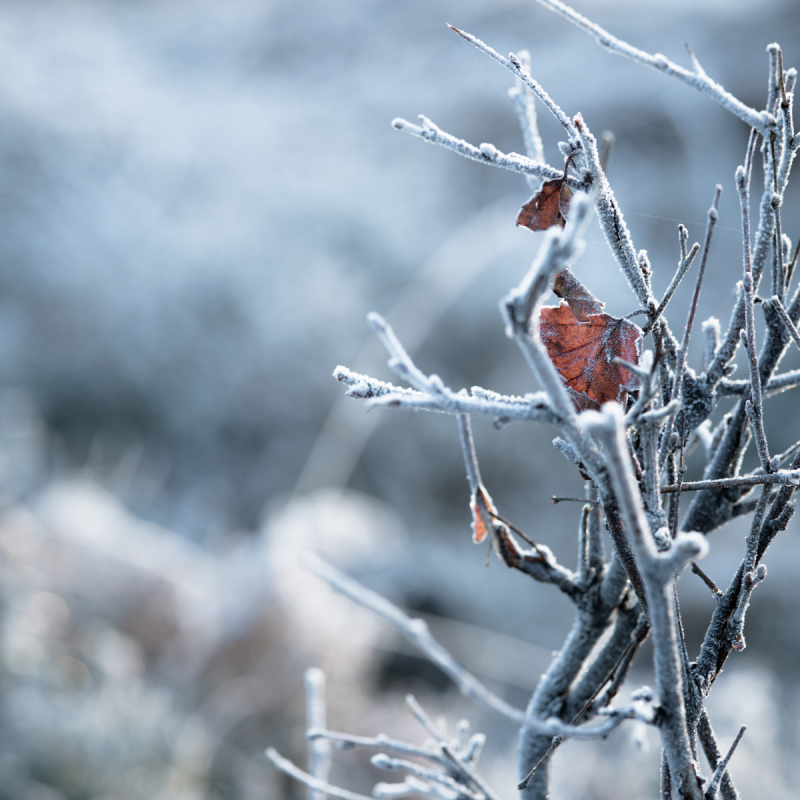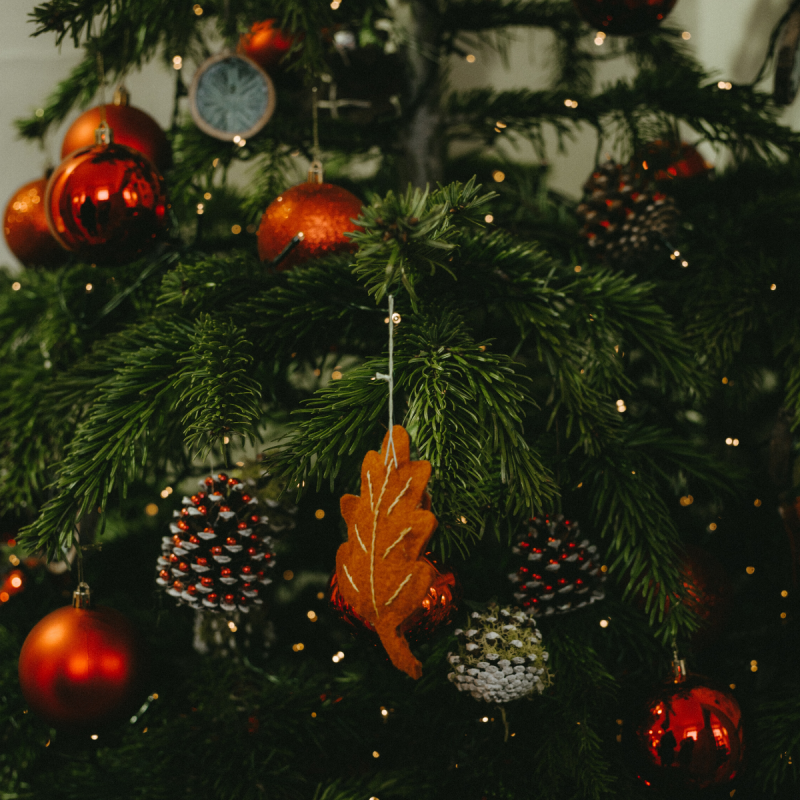By Shaely Ritchey
We are heading into the holiday season with its bright lights, festive decorations, traditions and holiday favourites, from movies to meals. This time of year brings with it many emotions, such as joy, excitement, and love, but also moments of stress, loneliness, and overwhelm. For those in recovery from an eating disorder, it can be a challenging time as much of the holiday season centers on food and family – both sources of nourishment and stress.
Navigating triggers such as diet talk, social events or social isolation, and having to engage with different situations around food, can bring up a lot of difficult feelings. However, the holiday season can also bring with it the opportunity to challenge ourselves, create new memories, and engage with new experiences. Doing so is certainly not always easy, but there are ways in which we can protect our recovery when we find ourselves caught up in moments that put us to the test.
Creating Space for Ourselves
 Amidst a flurry of holiday activities, finding space to recharge and ground ourselves is vital self-care. It is always okay to set boundaries around engagement and to take time away from activity to ensure we are looking after ourselves. Often it can feel as though if we are not committing 100% of our energy to something then we must be failing. However, offering 20% of ourselves in our efforts to engage is just as meaningful, even if we have to step away after a time or set a boundary around the type of activity we are engaging in. It is always okay to choose to partake in the activities that feel they support you and help you grow over other options that might feel more draining. We get to decide how we are going to engage and what is meaningful to us.
Amidst a flurry of holiday activities, finding space to recharge and ground ourselves is vital self-care. It is always okay to set boundaries around engagement and to take time away from activity to ensure we are looking after ourselves. Often it can feel as though if we are not committing 100% of our energy to something then we must be failing. However, offering 20% of ourselves in our efforts to engage is just as meaningful, even if we have to step away after a time or set a boundary around the type of activity we are engaging in. It is always okay to choose to partake in the activities that feel they support you and help you grow over other options that might feel more draining. We get to decide how we are going to engage and what is meaningful to us.
It can be quite helpful to have a few ideas of restoring activities or practices that we can turn to if we are feeling drained. Whether these are in the moment (such as deep breathing or stepping away for a second to ground ourselves) or practices we can carve out time for (reading, yoga, connecting with nature, talking to a supportive person in our lives.)
Disengaging with Diet Talk
One of the most challenging parts of the holiday season is the heavy presence of diet talk. It has become such a normal part of this season, starting with end of the year celebrations and moving on to new year’s resolutions. Watch what you eat, holiday weight, a sense of guilt for indulgence, weight loss as self-improvement... These ideas become more concentrated, discussed, and marketed around the holidays. However, just because this kind of attitude towards food and our relationship with our bodies has become commonplace, does not mean we have to accept it for ourselves and our lives. To reject the harmful notions of diet culture is radical act of self-love, but it is not always an easy thing to do. Toxic diet culture messages are pervasive in our personal interactions, from comments people make, to the broader cultural messages we receive at this time of year (and beyond). Still, there are some things we can do to look after our needs.
 Practicing Gratitude
Practicing Gratitude
Practicing gratitude is a simple but powerful skill. It can help us to remember that “while every day may not be good, there is some good in every day.” It can help us pick out the good moments from the stressful ones. Human brains have the tendency to focus on the negative as it has helped our species adapt and survive. However, this is not always well suited to today’s day and age though and that is why finding the good in each day (no matter how small) can help challenge your brain to notice the details to be cherished and celebrated.
There are many ways to practice gratitude. I personally strive to take a photo each day as it helps me pause and notice the beautiful details in the every day. But you can also write down your gratitude’s, quietly reflect on them in a personal practice, or find some other way of connecting with them. It is what works for you that matters.
Reflecting on Progress
As the year comes to an end, it is the perfect time to reflect on and celebrate the progress you have made this year. You might not be where you want to be just yet, but that does not erase the steps you have taken this year even if you have just felt like you are surviving. Each time we face our fears, challenge ourselves, and survive our thoughts, we take something back of ourselves and fight for a future we deserve. Even when things have not worked out how we might have hoped or there were things that happened that we could not have foreseen. Even if these feel like steps backward or an unanticipated change in direction, you survived the best way you knew how and that is courageous. The pieces may not have fallen together yet, but that does not change the fact that you have learned and grown or that you are deserving of love and a future where the pieces do fall into place. Life is fluid and we move with it the best way we know how. You have survived, maybe you have thrived. No matter what, you are a warrior. Keep fighting for the life you deserve.
Here are some questions to consider in your reflective practice:
 Setting Intentions
Setting Intentions
The other gift this time of year offers is the chance to look forward and set our intentions for what is to come. Setting intentions can look like anything, from concrete goal-planning to simply holding space to imagine the future and what we hope it to be. Without a doubt life will bring its challenges and things may shift in ways we cannot anticipate, but we can still open ourselves up to thinking about the future (even if it feels hard to relate to) and what we might want to see from it.
Here are some reflective questions to get you started:
Self-Compassion
Last but certainly not least, this time of year is a wonderful opportunity to practice compassion for ourselves. Likely we will run into stresses that challenge us and make us want to retreat from engagement over the coming weeks. While it is often hardest to reach for self-compassion in moments of challenge, it is usually the time when we need it the most. So, this holiday season when you are faced with anxiety over food, stressed by social situations, or feeling isolated while it might seem everyone else in the world is connecting, be gentle with yourself. Look for the ways you can comfort yourself, practice self-care, remember you are human, and find what renews your soul.
The holiday season can be tough. Recovery can be tough, but guess what, so are you.

Shaely is a registered nurse with interest in further education in nursing or medicine. She is also a passionate mental health advocate in her community. In her spare time she loves taking photographs, getting outdoors, and petting as many dogs as she can.